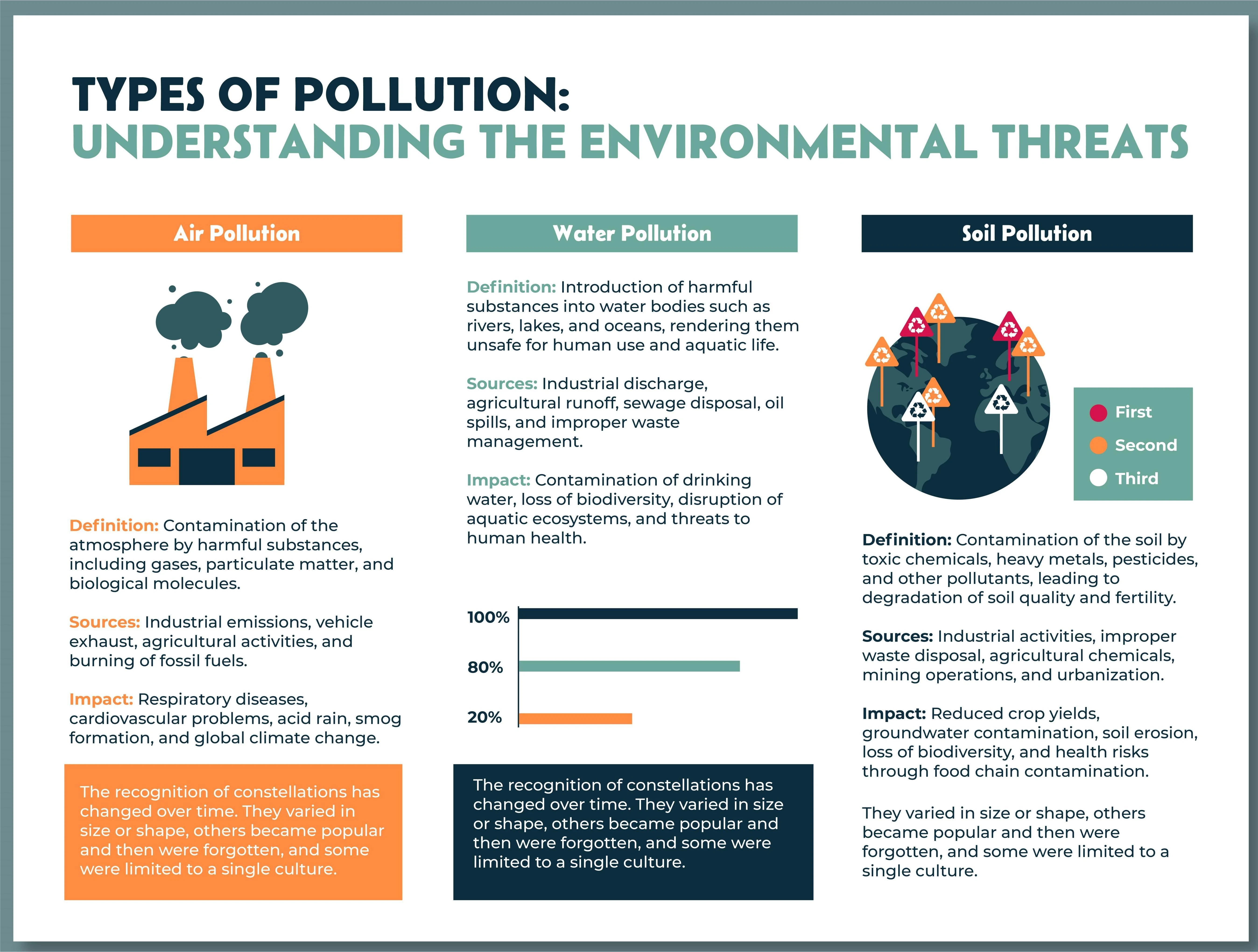The Silent Killer: How Pollution Impacts Our Health and Environment
Pollution—the silent killer that surrounds us daily—is one of the most pressing threats to both our health and the environment. Whether it's air pollution, water contamination, or plastic waste, the impact is profound and far-reaching. This blog post dives into the "recipe" for understanding how pollution shapes our world, offering tips, insights, and actionable steps to mitigate its effects.
Why This Topic Matters to Everyone
This "recipe" is for anyone passionate about their health, the planet, or creating a sustainable future for generations to come. Pollution affects everyone—regardless of where you live. From the air we breathe to the food we eat, it silently infiltrates every aspect of our lives. Understanding its effects equips us to make better choices for ourselves and the planet.
The Ingredients: Types of Pollution
To fully grasp the impact of pollution, let’s break it down into its key components:
1. Air Pollution
Sources: Vehicle emissions, industrial outputs, wildfires.
Impact: Increases respiratory diseases, exacerbates climate change.
2. Water Pollution
Sources: Agricultural runoff, untreated sewage, industrial waste.
Impact: Harms aquatic life, leads to waterborne diseases.
3. Soil Pollution
Sources: Excessive pesticide use, deforestation, improper waste disposal.
Impact: Reduces soil fertility, contaminates crops.
4. Plastic Pollution
Sources: Single-use plastics, improper recycling practices.
Impact: Threatens marine ecosystems, leaches harmful chemicals.
5. Noise and Light Pollution
Sources: Urbanization, excessive use of artificial lighting.
Impact: Disturbs wildlife, affects mental health.
Directions: How Pollution Impacts Us
Step 1: Health Consequences
Pollution is directly linked to illnesses such as asthma, cardiovascular diseases, and even cancer. Long-term exposure to pollutants can weaken the immune system, increase allergy rates, and cause developmental issues in children.
Step 2: Environmental Damage
Pollution accelerates global warming, disrupts ecosystems, and leads to biodiversity loss. Acid rain, for example, results from air pollution and harms forests, lakes, and buildings alike.
Step 3: Economic Costs
The economic burden of pollution is staggering—healthcare costs, loss of productivity, and environmental cleanup drain resources that could be invested in development and innovation.
Tools for Tackling Pollution
While we can't entirely eliminate pollution, small steps can make a big difference. Here's what you'll need to address pollution:
- Reusable Bags, Bottles, and Containers: Reduce single-use plastic consumption.
- Energy-Efficient Appliances: Minimize energy usage and emissions.
- Composting Bin: Turn organic waste into nutrient-rich soil instead of contributing to landfill pollution.
- Air Purifier: Improve indoor air quality, especially in urban areas.
- Public Transport or Bicycles: Lower your carbon footprint by reducing car usage.
Tips for Living Greener
- Switch to Renewable Energy: Solar and wind energy are excellent alternatives to fossil fuels.
- Support Eco-Friendly Brands: Choose companies committed to sustainability.
- Educate Yourself and Others: Awareness is the first step toward action.
Storing and Preserving the Environment
Unlike leftovers in the kitchen, the damage caused by pollution cannot simply be "stored away." However, you can preserve the environment by:
- Participating in community clean-ups.
- Practicing proper waste segregation.
- Planting trees to offset carbon emissions.
FAQ: Tackling the Pollution Problem
Q: How does air pollution affect mental health?
A: Research links air pollution to increased risks of depression and anxiety, likely due to its impact on brain inflammation and stress hormones.
Q: Can individual actions really make a difference?
A: Absolutely. Small changes, when multiplied by millions of individuals, create significant collective impact.
Q: Are there policies addressing pollution?
A: Yes, many governments are enacting stricter environmental regulations, promoting renewable energy, and implementing recycling programs.


%20(1).png)


Comments
Post a Comment